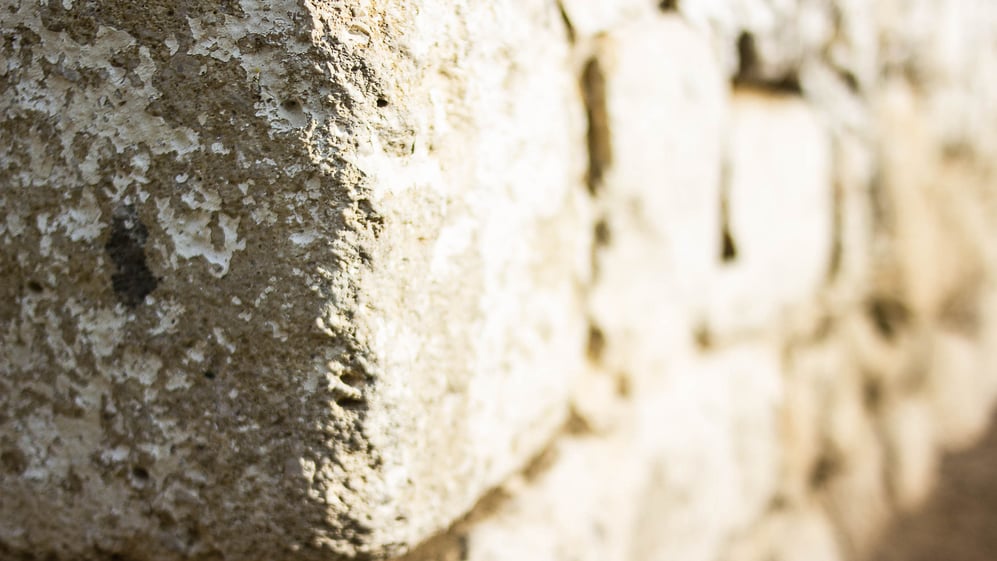There is peace to be found in the fear of God.
One of the practices our nation has had to adopt in the face of COVID-19 is contact tracing, identifying those with whom the infected person has had contact, and taking measures to isolate and treat such persons to control the spread of the virus. Sally contracted the virus from Dave, who contracted it from Arnold, and so forth.
The people of Israel had a virus of sorts, one from which they never seemed to be able to extricate themselves: that of adopting the idolatrous practices of those with whom they had contact. Throughout the history of the Israelites, they struggled to maintain purity in their worship to the Lord, instead taking on the beliefs and practices of the Egyptians, Assyrians, Babylonians, and so forth. This went on for generations. Like COVID-19 and contact tracing, the path and growth of this faithlessness to the Lord can be tracked. The people decided to fear the gods of those around them more than the one true God.
The prophet Isaiah speaks a word of admonition on this issue, pointing to benefits that will come because of repentance and trust in the Lord.
But the LORD of hosts, Him you shall honor as holy. Let Him be your fear, and let Him be your dread. And He will become a sanctuary and a stone of offense and a rock of stumbling to both houses of Israel, a trap and a snare to the inhabitants of Jerusalem. And many shall stumble on it. They shall fall and be broken; they shall be snared and taken. (Isaiah 8:13–15)
Study
- When we contract trace this failure to fear the Lord to its original source, we find Adam and Eve in the Garden of Eden. In the sense that fear involves trust, the first two human beings feared [trusted] the serpent, and ultimately themselves, more than God, with disastrous results. Rather than attending to the words of God regarding the tree in the midst of the garden, they listened to the words of the devil in Genesis 3:4–5: “You will not surely die. For God knows that when you eat of it your eyes will be opened, and you will be like God, knowing good and evil.” Ultimately, they did not fear God’s warning that if they ate of the forbidden fruit they would die; they put their trust in the tree, that it could give them something the Lord had not.
- In this same sense of fear as trust, we find ourselves fearing everything more than God. We fear other people such that we value their approval over God’s, and are willing do to whatever is needed to gain it. We fear leisure, our golf game, traveling sports teams, and other activities more than the Word and Sacraments, such that we are willing to miss church. We fear having our own way such that we are willing to disobey parents and others whom the Lord has placed in authority over us. We fear the pleasures associated with sexuality such that we are willing to take these gifts of God outside of His divine design. The list goes on. Luther ties into this notion as he begins the meaning to each of the Ten Commandments with “We should fear and love God.”
- Fearing God and letting Him be our dread also relates to eternal damnation. In Matthew 10:28, Jesus says, “And do not fear those who kill the body but cannot kill the soul. Rather fear him who can destroy both soul and body in hell.” Beyond the fear that relates to trust and love is the reality that God is almighty and just. Hell would have been the reality for Adam and Even and all of their offspring were it not for Christ. It is the reality for those who don’t trust in the Savior for the forgiveness of sins.
- Isaiah refers to “a stone of offense and a rock of stumbling.” This is none other than Jesus Christ. Recall the rock Moses struck in the desert to quench the thirst of the Israelites, and then the Rock pierced on the cross from which water and blood flowed. Jesus is the Rock on which He calls us to build. He is the chief cornerstone that the builders rejected. As He was during His years of ministry on earth, Jesus is a stone of offense to those who will not recognize their need for salvation and look to Him. To those outside of Jesus Christ, He represents the reality of man’s fallen state and the inadequacy of human merit and works. He is a Rock of such stumbling that those who rejected Him sought to take His life, and today work against His Church.
- In Christ, the Rock of our salvation, we see perfect fear. Where the world fears everything else, Jesus feared His Father in heaven. This is not terror, but rather the kind of divine love and respect to which Luther refers in the Small Catechism. Jesus feared such that He obeyed the call to take on human flesh in the Virgin Mary and live in a sinful world. Despite constant temptation, Jesus feared His Father in heaven and remained sinless in order that through faith His perfect life of fear would be counted as ours. Because of Christ, we no longer need fear being cast body and soul into hell, but rather anticipate joyfully the return of the Rock and spending eternity in our sanctuary.
Keep learning from Isaiah with Luther's own readings on the book!











